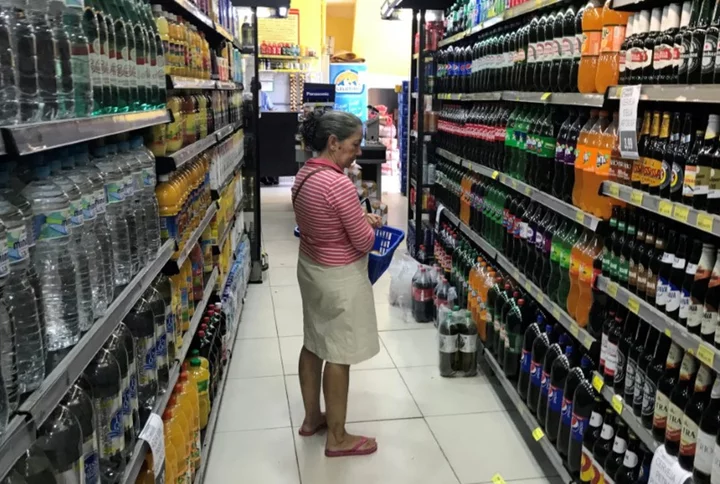BRASILIA (Reuters) -The Brazilian economy ended the third quarter in negative territory, central bank data showed on Friday, reversing a performance that had been surprisingly positive due to a booming farming sector.
The IBC-Br index, a key predictor of gross domestic product (GDP), posted a seasonally adjusted 0.64% decline in the third quarter.
This followed a 0.06% decrease in September compared to August, contrary to the 0.2% monthly expansion anticipated by economists polled by Reuters.
On a non-seasonally adjusted basis, the IBC-Br grew by 0.32% over September 2022 and expanded by 2.50% in the 12 months.
Finance Minister Fernando Haddad had already been drawing attention to a "very poor" third quarter, attributing it to high borrowing costs and declining commodity prices compared to the same period last year, factors impacting corporate performance and, consequently, tax revenue.
The Finance Ministry last estimated a 3.2% gross domestic product (GDP) growth for this year after a robust first-half performance, a figure expected to be revised next week.
Meanwhile, private economists surveyed weekly by the central bank project a 2.89% increase in GDP for this year.
The September IBC-Br index was in line with a negative performance of the service sector, which accounts for roughly 70% of the country's activity, said Nova Futura economist Nicolas Borsoi.
"There is now a downward bias to our forecast of a 0.2% GDP drop in the third quarter," he said. "My perception is that the fourth quarter will be even worse. For now we're sticking to our 3% growth forecast for the year, but 2.8% seems likely as well."
Latin America's largest economy has previously thrived on the strength of the agribusiness and extractive industries this year. It was also supported by measures implemented by President Luiz Inacio Lula da Silva's government to enhance household disposable income and consequently stimulate domestic demand.
(Reporting by Marcela Ayres; Editing by Steven Grattan)

